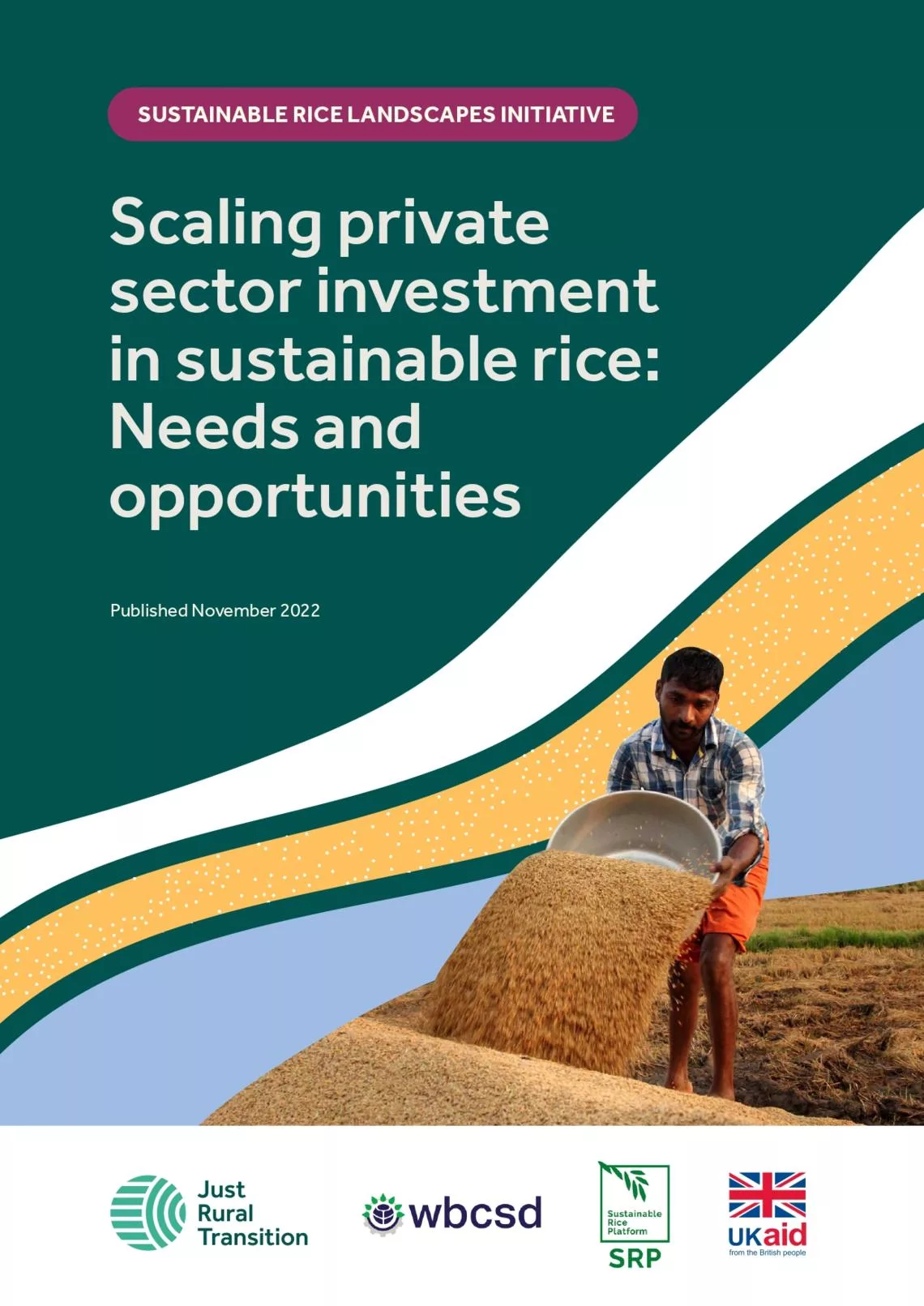Sustainable Rice Landscapes Initiative
Scaling private sector investment in sustainable rice: Needs and opportunities
Published: November 11, 2022

Rice production is crucial for global food security and nutrition, and provides livelihoods for nearly a billion people. However, the way rice is typically produced has a huge environmental impact, including emitting 10% of global methane and consuming 40% of global irrigation water, jeopardizing the long-term viability of rice farming and the communities that depend on it.
Proven and investment-ready sustainable rice production techniques, including better water management and improved rice varieties, have the potential to transform rice value chains to meet global climate, nature, inequality and nutrition goals. However, rice landscapes pose particular challenges for investors, including very small farm-level funding needs, the need for comprehensive support for farmers, including technical advice, market linkages and financial inclusion, and limited demand for sustainable rice.
This report, conducted by WBCSD in partnership with the Sustainable Rice Platform and the Just Rural Transition and with technical input from the Food and Agriculture Organization of the United Nations (FAO), highlights how innovative partnerships can overcome these challenges and drive finance towards sustainable rice landscapes for the benefit of people, climate and nature.
The report was developed as part of the work of the Sustainable Rice Landscapes Initiative (SRLI), whose founders and consortium partners include FAO, WBCSD, SRP, the International Rice Research Institute (IRRI), Deutsche Gesellschaft für Internationale Zusammenarbeit (GIZ) GmbH, and the UN Environment Program, and was written by Clarmondial with support from Versant Vision.